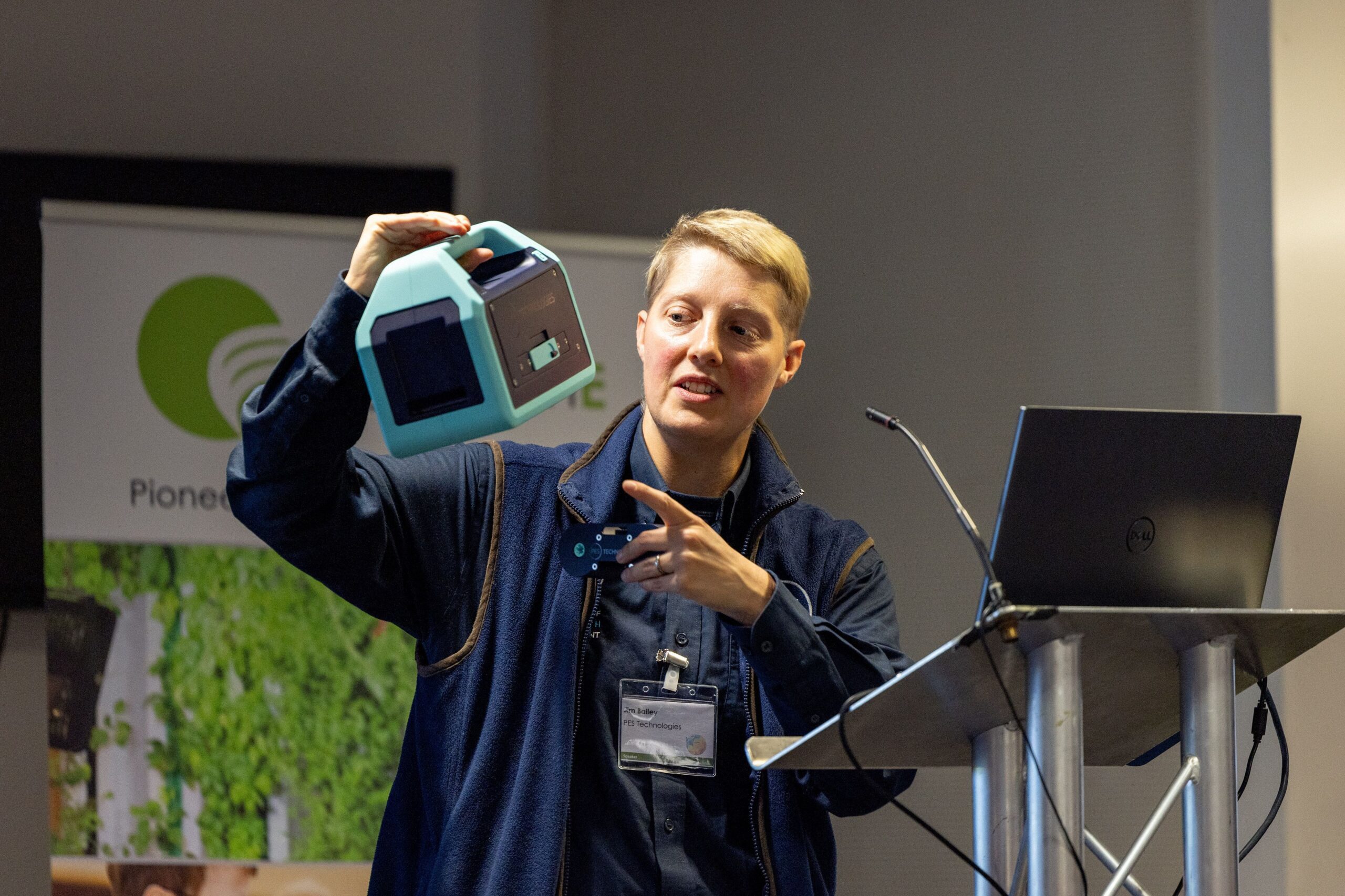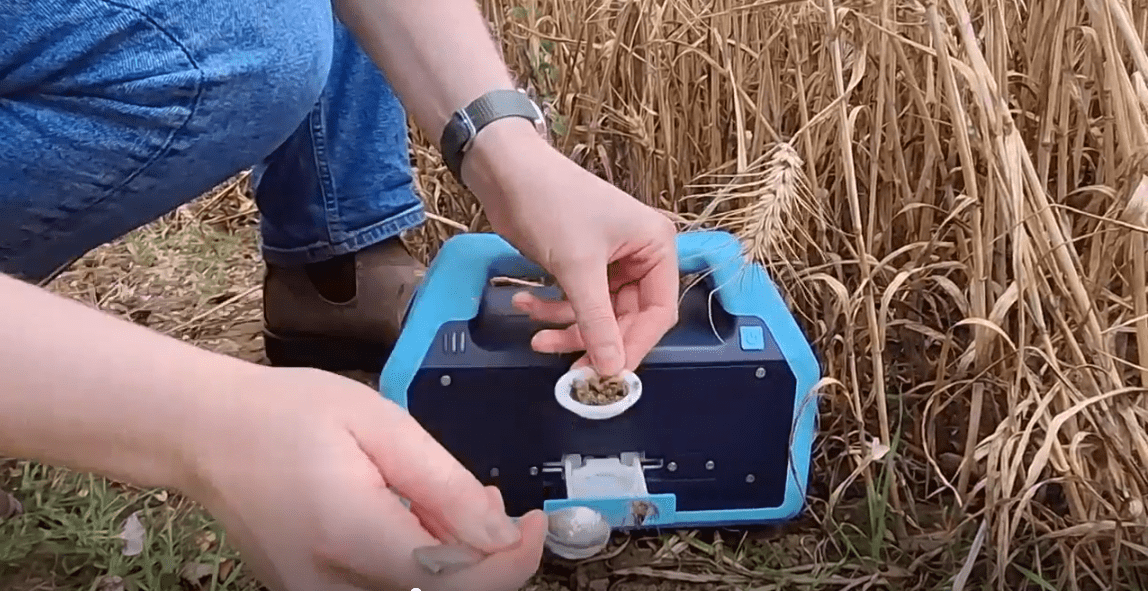
An electronic nose to sniff out soil health that will deliver results to a farmer’s phone in five minutes is being developed by PES Technologies. The company says it is able to create an aroma fingerprint from gas released by microbes in the soil. These organisms are essential for breaking down organic matter and making nutrients available to plants, but current biological lab tests are expensive and take ten weeks to provide results.
Presenting the prototype at the Agri-TechE REAP Conference 2023, Jim Bailey, CTO and Co-founder of PES Technologies, said: “Microbes in the soil are producing gases all the time through various means. Our product is essentially a sophisticated electronic nose that reacts to these gases as they are given off from the soil to create an electronic fingerprint for the sample.
“This fingerprint is then run through our machine learning algorithm that has been trained using soils of various types from across the UK, and results provide soil quality indicators for the specific soil sample. The whole process, from loading the soil sample to receiving results to your phone, takes a little over five minutes. There is no need to transport samples back to a lab, which saves further time.”
The emergence rate of seedlings is a key indicator of future yield, so optimising conditions on the seedbed is vital for the establishment of the crop. With precision agriculture it is increasingly possible to target fertiliser or seed rate according to the conditions, but the farmer has a small window of opportunity to do this, and soil composition and health can vary across the field. The PES device would provide the information required to inform these decisions.
Jim continued: “The results are available immediately, enabling in-field decisions to be taken when it is relevant and matters. The GPS function will enable the information to be integrated within other field maps used to direct precision farming.”
The electronic nose also provides an objective and consistent measurement of soil health over time. The Sustainable Farming Incentive (SFI) pays farmers to improve soils and nutrient management, so this is another benefit, explains Jim.
“As the testing will be cost-efficient, numerous samples can be made by the farm team, and the GPS and time stamping of the result enables tracking of changes with time. The GPS function will navigate you back to the same location through your phone to ensure repeatable samples. This provides an audit trail for the field, which may be helpful when applying for SFI.”

The idea for the sampling system came after a conversation with NIAB-EMR soil scientists highlighted the current issues that farmers have in assessing their soil health, particularly soil biology.
“We then completed a proof of concept Innovate UK project with NIAB-EMR, who were providing their soil science expertise, and a much larger follow-on project that included NIAB-EMR, Hutchinsons, University of Essex, the Natural Resources Institute at the University of Greenwich, and the Small Robot Company.
“From REAP, we are interested in meeting end-users – particularly agronomists – as well as collaborators. Our electronic nose could potentially be trained on more indicators than the ones that we will offer on launch, and we are keen to explore what people are looking for. We are happy to talk to companies that would want to fund a machine learning dataset for their own market niche and then utilise our hardware and machine learning support in that market.”
The product will launch commercially in 2024.
Find out more at pestechnologies.com.
Find out more about REAP at reapconference.co.uk.








